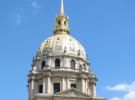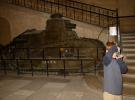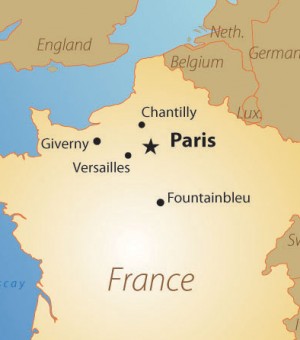Destination:
Paris and Day Trips
- Overview
- Basics
- Getting Ready
- Don't Miss
- Best Hotels
- Best Restaurants
- Best Salons and Spas
- Best Finds
- Strategies
- Explore by Area
- Day Trips
- Activities
- Key Events
- Monthly Calendar
- Contacts
Basics
topWhen to Go
Best time to visit Paris is May through July, although the cool fall months can also be wonderful. Most Parisians go on vacation in August, so many shops and restaurants may be closed. Other services may be limited at that time as well.
topWeather & Temperature
Paris has a moderate climate, with summer temperatures that rarely reach the 90s, and with winter temperatures which rarely drop below freezing. September, October and November have the least amount of rain, while May, June and July are the rainiest.
| Paris, France | |||||||||||||||||||||||||||||||||||||||||||||||||||||||||||||||||||||||||||||||||||||||||||||||||||
| JAN | FEB | MAR | APR | MAY | JUN | JUL | AUG | SEP | OCT | NOV | DEC | ||||||||||||||||||||||||||||||||||||||||||||||||||||||||||||||||||||||||||||||||||||||||
| Average High Temperature | °F | 43 | 45 | 51 | 57 | 64 | 70 | 75 | 75 | 69 | 59 | 49 | 45 | ||||||||||||||||||||||||||||||||||||||||||||||||||||||||||||||||||||||||||||||||||||||
| °C | 6 | 7 | 11 | 14 | 18 | 21 | 24 | 24 | 21 | 15 | 9 | 7 | |||||||||||||||||||||||||||||||||||||||||||||||||||||||||||||||||||||||||||||||||||||||
| Average Low Temperature | °F | 34 | 34 | 38 | 42 | 49 | 54 | 58 | 57 | 52 | 46 | 39 | 36 | ||||||||||||||||||||||||||||||||||||||||||||||||||||||||||||||||||||||||||||||||||||||
| °C | 1 | 1 | 3 | 6 | 9 | 12 | 14 | 14 | 11 | 8 | 4 | 2 | |||||||||||||||||||||||||||||||||||||||||||||||||||||||||||||||||||||||||||||||||||||||
| in | 0.28 | 0.41 | 0.51 | 1.31 | 1.07 | 0.56 | 0.31 | 0.32 | 0.61 | 0.65 | 0.37 | 0.91 | |||||||||||||||||||||||||||||||||||||||||||||||||||||||||||||||||||||||||||||||||||||||
| Average Precipitation | cm | 0.72 | 1 | 1.2 | 3.3 | 2.7 | 1.4 | 0.79 | 0.82 | 1.5 | 1.6 | 0.93 | 2.32 | ||||||||||||||||||||||||||||||||||||||||||||||||||||||||||||||||||||||||||||||||||||||
topTime Difference
Paris is on Central European Time (CET) which is one hour ahead of Greenwich Mean Time (+1 GMT) and six hours ahead of Eastern Standard Time (+6 EST). Daylight Saving Time is observed from the last Sunday in March to the last Sunday of October.
topPassport & Visa Requirements
Citizens of the US and Commonwealth countries do not need a visa to enter France. However, all travelers to France must have a valid passport; and children must travel on separate passports.
topMoney Matters
Local Currency
France's currency is the Euro. Notes come in denominations of €5, €10, €20, and €50, €100, €200. Coins come in €1, €2, and 50c, 20c, 10c, 5c, 2c and 1 cent pieces.
Credit Cards & Travelers Checks
Credit cards are widely used throughout Paris, and most major cards will be accepted. Traveler's checks are a good safeguard against theft, but not as convenient as credit cards or ATMs. Be sure to carry a valid ID for traveler's check purchases or exchange.
Changing Money
For best rates, change money at a bank or an American Express office. Bureaux de change storefronts are very convenient, but generally charge higher rates.
Currency converter
Tipping
The French do not tip heavily. A 15% service charge and 19.6% tax are automatically added to bills in bars and restaurants, but a small tip of 1-5% may be added for excellent service.
Wine steward – €1.50-3
Coatroom attendant – €1.50
Porters – €1.5-3 per bag
Chambermaids – €1.5-3 per day
Concierge – €10-20 depending on the length of your stay and the services provided.
Restroom attendant – €0.50
Usher – €0.75
Taxi drivers will expect a 10%-15% tip
topPhone
Dialing Codes
The dialing code for France is +33. Paris 10 digit phone numbers begin with 01. When dialing Paris from overseas, drop the zero from "01."
Information & Emergency Numbers
Emergency calls are free from public phones.
Operator: 13
Information: 12
Police: 17
Fire: 18
Ambulance: 15
Mobile Phones
France uses 900MHz or 1800MHz operating frequencies. Check before leaving home to see if your cell phone will work in France.
If you already have a GMS phone, make sure it's activated and SIM-unlocked. Prepaid SIM cards can be purchased at phone shops in France. Major service providers are Orange, Bouygues Telecom and SFR.
topElectrical
Electricity is 220V 50 Hz throughout France. Standard French plugs have either two parallel prongs, or two parallel prongs with third grounding blade.
topCustoms
It can be said that the predominant religion in France is French. This is especially true in Paris, which is rightfully proud of its culture. Those visitors who show an appreciation of the country's lifestyle and customs will be given more consideration than those that don't.
If you speak French, do so. If you do not, learn a few phrases. When you enter a shop or cafe, it's customary to greet the proprietor with "Bonjour, madame/monsieur," and to say "Merci, au revoir" upon leaving.
Handshakes are the common form of greeting. Use standard French titles monsieur, madame, mademoiselle along with the person's last name. Les bises, or "air kisses" are only used as a greeting among people you have already met.
Copyright 2013 MyLittleSwans, LLC. All rights reserved. My Little Swans, the logo and Share a world of experience are registered Trademarks of MyLittleSwans, LLC. Use of this site constitutes acceptance of our Terms of Use and Privacy Policy.




















